
Director
Mozart's opera The Marriage of Figaro performed live (and streamed) on the February 4, 2021.

Production Design
Mozart’s early masterpiece returned to the Met for the first time in more than a decade with Music Director Emeritus James Levine, who led the work’s company premiere in 1982, again on the podium. Tenor Matthew Polenzani brings both steely resolve and compassionate warmth to the title king of Crete, who is faced with an impossible decision. With her rich mezzo-soprano, Alice Coote sings the trouser role of Idomeneo’s son Idamante, who loves the Trojan princess Ilia, sung with delicate lyricism by Nadine Sierra. Elza van den Heever gives a thrillingly unhinged portrayal of the jealous Elettra. Jean Pierre-Ponnelle’s timeless production blends the grandeur of ancient myth with the elegance of Enlightenment ideals.

Costume Designer
Mozart’s early masterpiece returned to the Met for the first time in more than a decade with Music Director Emeritus James Levine, who led the work’s company premiere in 1982, again on the podium. Tenor Matthew Polenzani brings both steely resolve and compassionate warmth to the title king of Crete, who is faced with an impossible decision. With her rich mezzo-soprano, Alice Coote sings the trouser role of Idomeneo’s son Idamante, who loves the Trojan princess Ilia, sung with delicate lyricism by Nadine Sierra. Elza van den Heever gives a thrillingly unhinged portrayal of the jealous Elettra. Jean Pierre-Ponnelle’s timeless production blends the grandeur of ancient myth with the elegance of Enlightenment ideals.

Set Designer
Mozart’s early masterpiece returned to the Met for the first time in more than a decade with Music Director Emeritus James Levine, who led the work’s company premiere in 1982, again on the podium. Tenor Matthew Polenzani brings both steely resolve and compassionate warmth to the title king of Crete, who is faced with an impossible decision. With her rich mezzo-soprano, Alice Coote sings the trouser role of Idomeneo’s son Idamante, who loves the Trojan princess Ilia, sung with delicate lyricism by Nadine Sierra. Elza van den Heever gives a thrillingly unhinged portrayal of the jealous Elettra. Jean Pierre-Ponnelle’s timeless production blends the grandeur of ancient myth with the elegance of Enlightenment ideals.

Director
"This is Vienna State Opera live at home". April 2015. 'L'italiana in Algeri' (English: 'The Italian Girl in Algiers') is an operatic dramma giocoso in two acts by Gioachino Rossini to an Italian libretto by Angelo Anelli, based on his earlier text set by Luigi Mosca. It premiered at the Teatro San Benedetto in Venice on 22 May 1813. The music is characteristic of Rossini's style, remarkable for its fusion of sustained, manic energy with elegant, pristine melodies.

Set Designer
Jean-Pierre Ponnelle’s dramatic production brings ancient Rome to life for this gripping tale of revenge, terror, and attempted murder. Giuseppe Filianoti is the Emperor Tito who chooses Servilia to be his Empress. But when she tells him she is already in love with Annio he decides to wed Vitellia instead. Unaware of the honor about to be bestowed on her, Vitelllia, daughter of the deposed emperor, is determined to seek revenge on Tito and ensnares her lover Sesto in her dark plot. Early music specialist Harry Bicket conducts.

Production Design
Jean-Pierre Ponnelle’s dramatic production brings ancient Rome to life for this gripping tale of revenge, terror, and attempted murder. Giuseppe Filianoti is the Emperor Tito who chooses Servilia to be his Empress. But when she tells him she is already in love with Annio he decides to wed Vitellia instead. Unaware of the honor about to be bestowed on her, Vitelllia, daughter of the deposed emperor, is determined to seek revenge on Tito and ensnares her lover Sesto in her dark plot. Early music specialist Harry Bicket conducts.

Costume Design
Jean-Pierre Ponnelle’s dramatic production brings ancient Rome to life for this gripping tale of revenge, terror, and attempted murder. Giuseppe Filianoti is the Emperor Tito who chooses Servilia to be his Empress. But when she tells him she is already in love with Annio he decides to wed Vitellia instead. Unaware of the honor about to be bestowed on her, Vitelllia, daughter of the deposed emperor, is determined to seek revenge on Tito and ensnares her lover Sesto in her dark plot. Early music specialist Harry Bicket conducts.

Director
The Grammy award-winning pianist Daniel Barenboim, long known for his Mozart interpretations, turns his attention to Mozart's last 8 piano concertos. The music of Mozart has quite literally been an essential driving force of Daniel Barenboim’s entire life. It remains central to his performing career both as a pianist and as a conductor. These illuminating performances of Mozart’s last eight great piano concertos admirably demonstrate Barenboim’s dictum that even when a true musician has already performed a familiar work hundreds of times, he or she ‘never accepts that the next note will be played the same way as it was played before.

Director
The Grammy award-winning pianist Daniel Barenboim, long known for his Mozart interpretations, turns his attention to Mozart's last 8 piano concertos. The music of Mozart has quite literally been an essential driving force of Daniel Barenboim’s entire life. It remains central to his performing career both as a pianist and as a conductor. These illuminating performances of Mozart’s last eight great piano concertos admirably demonstrate Barenboim’s dictum that even when a true musician has already performed a familiar work hundreds of times, he or she ‘never accepts that the next note will be played the same way as it was played before.

Costume Design
Nikolaus Harnoncourt conducts the Wiener Philharmoniker in this filmed studio performance of Mozart's opera recorded in 1988.

Production Design
Nikolaus Harnoncourt conducts the Wiener Philharmoniker in this filmed studio performance of Mozart's opera recorded in 1988.

Director
Nikolaus Harnoncourt conducts the Wiener Philharmoniker in this filmed studio performance of Mozart's opera recorded in 1988.

Director
L'ITALIANA IN ALGERI is an operatic dramma giocoso in two acts by Gioachino Rossini to an Italian libretto by Angelo Anelli. Rossini composed L'italiana in Algeri when he was 21 in either 18 or 27 days, depending on which source one believes (Rossini, not surprisingly, pegged it at 18). It premiered at the Teatro San Benedetto in Venice on 22 May 1813. The music is characteristic of Rossini's style, remarkable for its fusion of sustained, manic energy with elegant, pristine melodies. The plot, in brief: Isabella’s lover Lindoro has been kidnapped, and in her search for him she is shipwrecked and taken captive by Mustafa, Bey of Algiers. To her amazement and delight, she finds Lindoro among the Bey’s prisoners. Isabella hatches a plot that involves flirtation and stealth, and together she and Lindoro escape. Marilyn Horne, Pablo Montarsolo, Douglas Ahistedt, and Allan Monk star in this legendary Metropolitan Opera production conducted by James Levine.

Production Design
L'ITALIANA IN ALGERI is an operatic dramma giocoso in two acts by Gioachino Rossini to an Italian libretto by Angelo Anelli. Rossini composed L'italiana in Algeri when he was 21 in either 18 or 27 days, depending on which source one believes (Rossini, not surprisingly, pegged it at 18). It premiered at the Teatro San Benedetto in Venice on 22 May 1813. The music is characteristic of Rossini's style, remarkable for its fusion of sustained, manic energy with elegant, pristine melodies. The plot, in brief: Isabella’s lover Lindoro has been kidnapped, and in her search for him she is shipwrecked and taken captive by Mustafa, Bey of Algiers. To her amazement and delight, she finds Lindoro among the Bey’s prisoners. Isabella hatches a plot that involves flirtation and stealth, and together she and Lindoro escape. Marilyn Horne, Pablo Montarsolo, Douglas Ahistedt, and Allan Monk star in this legendary Metropolitan Opera production conducted by James Levine.
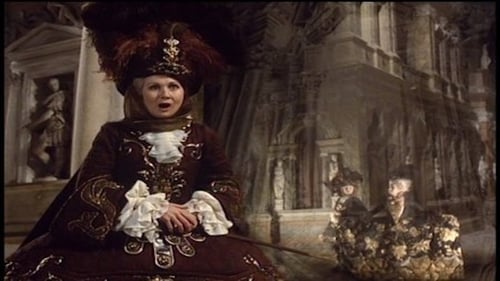
Production Design
Soprano Yvonne Kenny turns in a spirited performance as Aspasia in this brilliant staging of composer Wolfgang Amadeus Mozart's first notable opera -- penned when he was only 14 years old. The production, set in early Roman times, follows the inner circle of the empire's most formidable foe, King Mithridates of Pontus. Maestro Nikolaus Harnoncourt conducts the sterling cast, which includes tenor Gosta Winbergh and mezzo-soprano Ann Murray.

Director
Soprano Yvonne Kenny turns in a spirited performance as Aspasia in this brilliant staging of composer Wolfgang Amadeus Mozart's first notable opera -- penned when he was only 14 years old. The production, set in early Roman times, follows the inner circle of the empire's most formidable foe, King Mithridates of Pontus. Maestro Nikolaus Harnoncourt conducts the sterling cast, which includes tenor Gosta Winbergh and mezzo-soprano Ann Murray.

Director
Wolfgang Sawallisch conducts this acclaimed staging of Paul Hindemith's ambitious opera of the goldsmith Cardillac, whom fortune seems to favor and then abandon, featuring Donald McIntyre and Maria de Francesca-Cavazza in the starring roles. Filmed in 1985 at the Bavarian State Opera and directed by the legendary Jean-Pierre Ponnelle, the production captures every nuance of Hindemith's powerful tale of love, suspicion and betrayal. Opera Performance, recorded at 16-25 September 1985 at the National Theater in Munich.

Director
The sets and costumes by Ponnelle are truly reflective of the 'grand style'. Plus the fact that the two lead characters are portrayed by top singers in their absolute prime - both Gruberova and Araiza weren't even 35 years old at the time of this performance, makes this production the most convincing both dramatically and musically. The conducting of Fischer is good - he makes the music come alive, much more so than the MET version.

Director
バイロイト祝祭劇場にて上演された舞台「トリスタンとイゾルデ」を映像化。鬼才・ポネルが演出・装置・衣装を担当し、ダニエル・バレンボイムがタクトを振る。

Costume Design
Mozart’s “The Magic Flute”

Production Design
Mozart’s “The Magic Flute”

Director
Mozart’s “The Magic Flute”
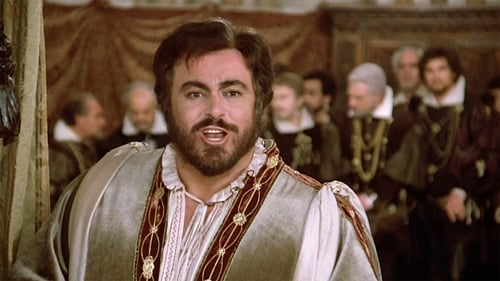
Director
Rigoletto is a jester in the court of the Duke of Mantua. He has a hunch-back and he's rather unattractive, but he's good at his job of humiliating the courtiers for the amusement of the Duke. The courtiers, of course, are not amused. The Duke is a ladies man who feels his life would be meaningless if he couldn't chase every skirt he sees. In fact, we learn as the opera begins that he's recently been noticing a young lady every Sunday on her way to church, and he's vowed to have his way with her. What nobody realizes is that the girl is the jester's beloved daughter, Gilda, and that Gilda has seen the Duke every Sunday and is smitten with him. Suddenly Count Monterone appears at court, furious that the Duke has seduced his daughter. Rigoletto ridicules Monterone, the Duke laughs, and Monterone casts an awful curse on both of them. Later, the courtiers discover that Rigoletto is secretly living with Gilda...

Director
Opera royalty Luciano Pavarotti brings dignity and power to the title role in this 1982 production. During a squall at sea, Idomeneo -- the king of Crete -- swears to Neptune that if the monarch survives, he'll sacrifice the first person he encounters onshore. Tragically, that person ends up being his son, Idamante (Frederica Von Stade). Maestro James Levine masterfully conducts the orchestra and chorus of the Metropolitan Opera. A musical production that was designed for the "Live From the Met" series, this program was produced by Jean-Pierre Ponnelle.

Director
Placido Domingo celebrates the city that has inspired the greatest number of opera composers as a setting.

Production Design
The Prince, Don Ramiro (who has changed places with his valet, Dandini), meets Cenerentola and they are instantly attracted to each other. When the Philosopher, Alidoro, later takes Cenerentola (dressed in magnificent clothing) to the palace, Dandini (still posing as the prince) tries to talk of love to her, but Cenerentola rejects him, saying that she is in love with his 'valet'. Ramiro, who has overheard this comment, is overjoyed, and immediately proposes to her, but Cenerentola says that he must first seek her out and then, if he still felt the same way, she would marry him. She gives him one of a matching pairs of bracelets, telling him to look for its companion on her right arm (she then leaves the palace). Ramiro ends the masquerade, and he and Dandini resume their true identities. The Prince then sets out on his quest - little realising that destiny, in the form of a violent thunderstorm, is about to take a hand in the affair.

Director
The Prince, Don Ramiro (who has changed places with his valet, Dandini), meets Cenerentola and they are instantly attracted to each other. When the Philosopher, Alidoro, later takes Cenerentola (dressed in magnificent clothing) to the palace, Dandini (still posing as the prince) tries to talk of love to her, but Cenerentola rejects him, saying that she is in love with his 'valet'. Ramiro, who has overheard this comment, is overjoyed, and immediately proposes to her, but Cenerentola says that he must first seek her out and then, if he still felt the same way, she would marry him. She gives him one of a matching pairs of bracelets, telling him to look for its companion on her right arm (she then leaves the palace). Ramiro ends the masquerade, and he and Dandini resume their true identities. The Prince then sets out on his quest - little realising that destiny, in the form of a violent thunderstorm, is about to take a hand in the affair.

Stage Director
Live performance, part of Monteverdi cycle staged by Oper Zürich with Nikolaus Harnoncourt conducting the Zürich Opera House Monteverdi Ensemble. Staged and directed by Jean-Pierre Ponnelle

Set Designer
Live performance, part of Monteverdi cycle staged by Oper Zürich with Nikolaus Harnoncourt conducting the Zürich Opera House Monteverdi Ensemble. Staged and directed by Jean-Pierre Ponnelle

Director
Live performance, part of Monteverdi cycle staged by Oper Zürich with Nikolaus Harnoncourt conducting the Zürich Opera House Monteverdi Ensemble. Staged and directed by Jean-Pierre Ponnelle
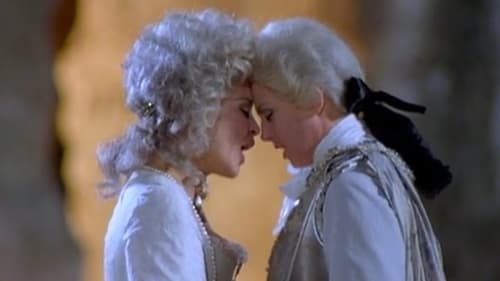
Director
"La Clemenza di Tito" was Mozart's last stage work. It was commissioned for an Imperial coronation ceremony while Mozart was at work on "Die Zauberflöte" and was composed in great haste. Indeed, time was so short that composition of the secco recitatives was assigned to Mozart's pupil Süssmayr. As in the earlier "Idomeneo", Mozart sought to produce an opera seria that was dramatically viable. He enlisted the poet Mazzolà to substantially revise the Metastasio libretto, which had already been set some fifty times. The number of arias was reduced from 25 to 11, and ensembles and choruses were added to enliven the proceedings. Though perhaps not the very top-drawer Mozart, the music is wonderful.

Set Designer
Live performance, part of Monteverdi cycle staged by Oper Zürich with Nikolaus Harnoncourt conducting the Zürich Opera House Monteverdi Ensemble. Staged and directed by Jean-Pierre Ponnelle

Stage Director
Live performance, part of Monteverdi cycle staged by Oper Zürich with Nikolaus Harnoncourt conducting the Zürich Opera House Monteverdi Ensemble. Staged and directed by Jean-Pierre Ponnelle

Director
Live performance, part of Monteverdi cycle staged by Oper Zürich with Nikolaus Harnoncourt conducting the Zürich Opera House Monteverdi Ensemble. Staged and directed by Jean-Pierre Ponnelle

Stage Director
Live performance, part of Monteverdi cycle staged by Oper Zürich with Nikolaus Harnoncourt conducting the Zürich Opera House Monteverdi Ensemble. Staged and directed by Jean-Pierre Ponnelle. Filmed 28 March – 20 April 1978 in Vienna, sound recorded 1 – 25 December 1977 in Zürich.

Set Designer
Live performance, part of Monteverdi cycle staged by Oper Zürich with Nikolaus Harnoncourt conducting the Zürich Opera House Monteverdi Ensemble. Staged and directed by Jean-Pierre Ponnelle. Filmed 28 March – 20 April 1978 in Vienna, sound recorded 1 – 25 December 1977 in Zürich.

Director
Live performance, part of Monteverdi cycle staged by Oper Zürich with Nikolaus Harnoncourt conducting the Zürich Opera House Monteverdi Ensemble. Staged and directed by Jean-Pierre Ponnelle. Filmed 28 March – 20 April 1978 in Vienna, sound recorded 1 – 25 December 1977 in Zürich.
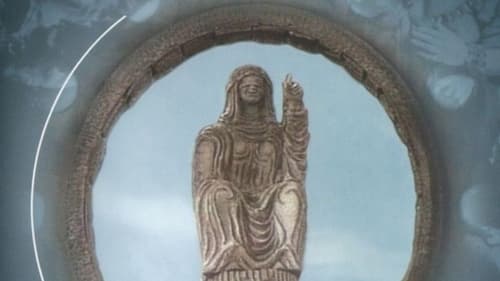
Adaptation
A very visual and profound dramatization of the various sections of Carmina Burana, a symphonic piece composed by Carl Orff about medieval poetry by an anonymous author.

Director
A very visual and profound dramatization of the various sections of Carmina Burana, a symphonic piece composed by Carl Orff about medieval poetry by an anonymous author.
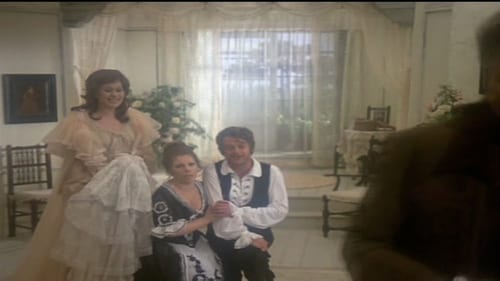
Director
Mozart's Marriage of Figaro is a comedy whose dark undertones explore the blurred boundaries between dying feudalism and emerging Enlightenment. Herman Prey's Figaro is admirably sung in a firm baritone and aptly characterized. So too, is his antagonist, Dietrich Fischer-Dieskau as the Count perpetually frustrated by the scheming wiles of Figaro and Susanna, here the perky Mirella Freni, who sings and acts like a dream. The Countess is creamy-voiced Kiri Te Kanawa, and the Cherubino, Maria Ewing, looks just like the horny, teenaged page she's supposed to be. The all-star leads are complemented by worthy supporting singers, the Vienna Philharmonic at the top of its form, and the experienced Mozartian, Karl Böhm conducting a stylishly fleet performance.

Director
Mirella Freni, Placido Domingo, Christa Ludwig, and Robert Kerns star in this Jean-Pierre Ponnelle-directed version of the Puccini opera, with Herbert von Karajan conducting the Vienna Philharmonic. Madama Butterfly is a staple of the standard operatic repertoire for companies around the world, ranking 7th in the Operabase list of the most-performed operas worldwide.

Director

Costume Design

Production Design

Director
Count Almaviva is in love with Rosina. However, she is currently staying with Dr. Bartolo – who desires to marry her. By using a series of disguises, Almaviva manages to pass letters to Rosina and serenade her with his beautiful voice. Dr. Bartolo does his best to stop Almaviva but is constantly thwarted. In the end, Count Almaviva marries Rosina and Dr. Bartolo comes to terms with his defeat.






































